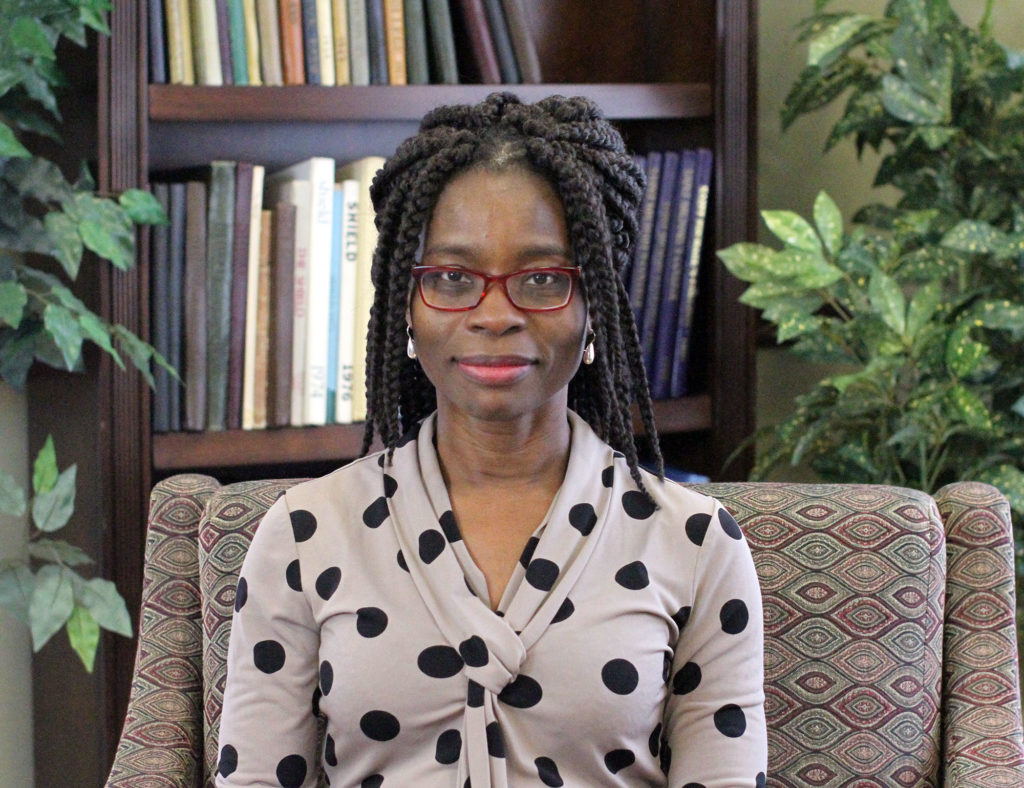Alaba Apesin Associate Professor of Business Administration

Bio
Degrees:
Ph.D. University of Maryland Eastern Shore
M.B.A. Delaware State University
H.N.D. Yaba College of Technology
Areas of Expertise:
Organizational leadership
Student leadership development
Training and Development
Quality and Production Management
Quality, Occupational Health and Safety Auditing
Courses Taught:
Managerial Ethics and Ethical Issues in Business
Analytics in Operations
Research
My research includes the study of the predictors of student leadership development, the relationship between students’ leadership practices and their learning outcomes, and the effect of faculty leadership behaviors on students’ non-cognitive learning outcomes. My objective is to continue investigating the variables that positively and significantly influence students’ leadership and their readiness for the workplace.
Awards & Recognition
Member of Beta Gamma Sigma
Member of International Leadership Association
Recent News
Alaba Apesin of the Saint Michael’s Business Administration and Accounting faculty has a recent presentation and publication to her credit. Her presentation at the Academy of Management Annual Meeting in July 2021 was titled “Impact of Leadership Academy on the Transformational and Servant Leadership Development of Students,” a collaboration with her St. Mike’s colleague Paul Olsen. Their work assesses the impact of the leadership academy (a structured training invention), implemented by the athletics department of a private liberal art college, on the leadership development of student-athletes. It shows that participation in the leadership academy positively influences their transformational and servant leadership development more significantly than non-participation. Alaba also had a publication in Journal of Leadership Education in April 2021, titled “Investigating the Predictors of Leader Self-Efficacy (LSE) Development among Freshmen in Historically Black Institutions. “ Her co-author was Tao Gong (University of Maryland Eastern Shore). The study aimed to identify the effects of college experiential variables (environment) on student Leader Self-Efficacy development (output) while controlling for pre-college variables (input). Pre- and post-data were collected from 200 freshmen studying at two Historically Black Institutions and analyzed using the hierarchical multiple regression (HMR). The findings suggested that pre-college LSE and college co-curricular leadership experiences significantly influence students’ LSE development.
(posted February 2022)
Alaba Apesin of the Saint Michael’s business administration and accounting faculty on November 8, 2020, presented her paper “Predictors of First-Year Students Leadership Development in Historically Black Institutions” at the International Leadership Association (ILA) 22nd Annual Global Conference, an online virtual event that ran from November 5-9, 2020.
(posted February 2021)
Alaba Apesin, assistant professor of business administration, helped all 17 members of her class who made the attempt to earn their professional Microsoft Office Specialist (MOS) Excel 2016 Core Certification in December. Students enrolled in BU 190 Topics: Microsoft Excel, a two-credit elective course taught by Alaba, were given the option to sit for the exam at the end of the course. Alex Colletta, an employee in Information Technology and assistant lead on many programs, helped get the testing center set up this past fall as there was only one testing site option in the state, a distance away. Saint Michael’s recently became one of only two Certiport Authorized Testing Centers in Vermont.
(posted January 2019)
Alaba Apesin, assistant professor of business administration, was presented with the Distinguished Research Paper award for her research paper, “Effect of Instructor Transformational Leadership on Student Learning Behavior,” during the Association of Leadership Educators (ALE) Conference in Charleston, SC, on July 11, 2017. The study provides an insight into the relationship between instructors’ transformational leadership behaviors and students’ motivation, positive attitude and participation.
(posted December 2017)